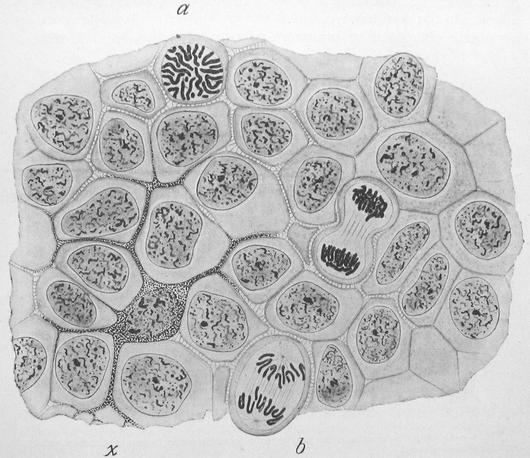The cell makes up all life on Earth, which ranges from single-celled species to organisms like ourselves that comprise billions of cells collected into progressively more complex structures. Almost all cells are too small to be visible to the human eye.
In some tissues, cells link together into a grid, hence their name and the fact that their commonly applied moniker "the building blocks of life." In fact, this grid structure was observed at the discovery of cells in 1665 by Robert Hooke, who noted that cork cells resembled the dwellings inhabited by monks. In the figure below, we show an illustration of onion cells at differing stages of the cell cycle, as drawn by Edmund Wilson in 1900.

The interior of the bacterial cell is active but relatively less complex than that of eukaryotic cells, which contain a greater collection of membrane-enclosed substructures (called organelles). Organelles power a wide array of cellular functions, from protein creation to regulating the cell's water content. The most important and prominent eukaryotic organelle is the nucleus, which serves as the cell's central brain, conveying genetic information to the entire cell via the instructions locked in DNA.